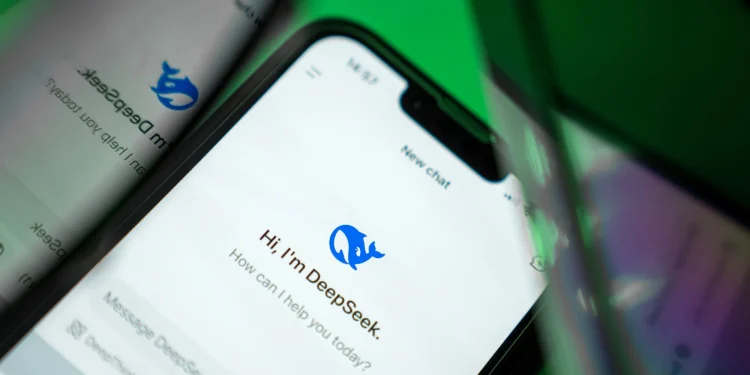Jakarta, Indonesia Sentinel — A growing number of companies and government agencies worldwide are restricting employee access to DeepSeek, a Chinese AI startup, amid fears of potential data leaks to the Chinese government and weak data privacy protections.
According to Nadir Izrael, CTO of cybersecurity firm Armis Inc., “Hundreds of companies, particularly those connected to government entities, have taken steps to block access to DeepSeek.” He emphasized concerns about potential data exposure to Chinese authorities and what many view as inadequate privacy safeguards.
Netskope Inc., a company specializing in managing corporate internet access, reported similar findings. “Around 70% of Armis clients have requested blocks on DeepSeek, while 52% of Netskope’s clients have completely restricted access,” said Ray Canzanese, Director of Netskope’s Threat Labs.
The Core Issue: Data Collection and Storage in China
DeepSeek’s privacy policy acknowledges the collection of keystrokes, text and audio inputs, uploaded files, user feedback, chat histories, and other content. The company states this data is used to train its AI models and may be shared with law enforcement or local authorities in China.
This has fueled anxiety among privacy-conscious organizations, especially since DeepSeek stores user data on servers located in China. Under Chinese law, companies are required to cooperate with state intelligence agencies, raising red flags about the potential for government access to sensitive data.
Despite these concerns, DeepSeek remains highly popular. The app currently tops download charts on both the Apple App Store and Google Play Store, highlighting a disconnect between security fears and user enthusiasm for AI-driven tools.
Pentagon and U.S. Military Join the Ban
The U.S. Department of Defense (DoD), commonly known as the Pentagon, recently blocked DeepSeek following reports that some employees had inadvertently connected their work computers to Chinese servers via the app.
Citing TechCrunch, the Pentagon’s decision was driven by DeepSeek’s explicit terms of service, which confirm that user data is stored in China and governed by Chinese law—mandating cooperation with the country’s intelligence agencies.
However, prior to the ban, several Pentagon employees had tested DeepSeek, unknowingly exposing sensitive systems to potential risks. According to Bloomberg, this occurred over a two-day period before the security breach was identified.
The Pentagon isn’t alone. On January 24, the U.S. Navy also prohibited its personnel from accessing DeepSeek, citing both security and ethical concerns. Despite these measures, some federal employees reportedly still have access to the platform, raising further questions about enforcement and national security vulnerabilities.
Read Also:
South Korea Police Uncover Massive Deepfake Network, Exploiting Over 230 Victims!
Balancing Innovation with Security
The DeepSeek controversy underscores a broader debate: Can the benefits of cutting-edge AI technology from China be separated from the risks of data security and government surveillance?
As AI tools become integral to daily workflows, organizations worldwide face tough decisions about balancing innovation with privacy and security—especially when foreign data laws come into play.
(Becky)

























